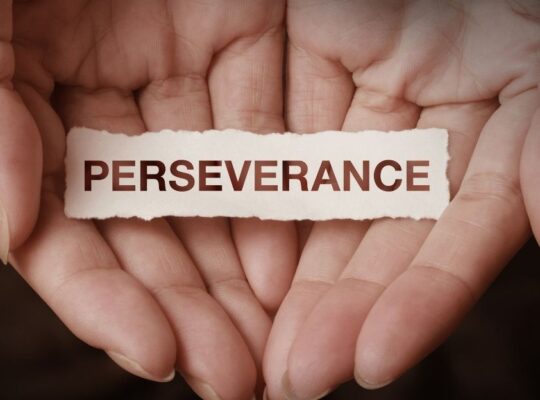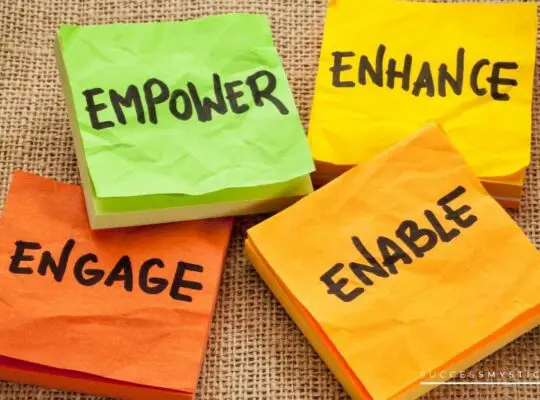It was Friedrich Nietzsche who coined the phrase… “What doesn’t kill us makes us stronger“.
While it has been repeated countlessly throughout the last hundred or so years is it true?
People who have been the victim of serious traumas, including abuse, natural disasters, life changing accidents, and homelessness frequently suffer from long-term effects. The most common long-term negative effect, of course, being mental health issues.
There has long been a belief among laymen that adversity leads to the triumph of being a more resilient, well-rounded person. Going through that difficult time has shaped individuals into stronger people who can face change and trauma with steel and determination. Right?
It is important to understand that the majority of people are able to cope with significant adversity without suffering permanent damage. However, there is a limit to this. We often bounce back from hardship much quicker than we expect to and in better shape than anticipated.
However, there is difference between returning to normal and being stronger. For instance, there is a good chance that as child you dealt with a move, the breakup of your parents, or school bullying. At the time, it felt like the worst possible time of your life, but you did come through it and for the most part, you are unscathed.
People are able to cope with a miscarriage, the breakdown of a relationship, the loss of a friend, and more without it encompassing their lives.
Research (On Whatever Does Not Kill Us: Cumulative Lifetime Adversity, Vulnerability, And Resilience, Seery, et al) has indicated that what doesn’t kill you, will make you stronger, but only when such adversity is in moderation.
The study combined the data of around 2,000 Americans ranging from 18 to 101. Each participant was to fill out a survey regarding the lifetime adversity they had faced, including illness, assault, injury, natural disaster, losing a loved one, and financial difficulties.
Those with more adversity were more likely to suffer from anxiety and depression, feel less satisfied, and had more emotional problems.
This shouldn’t be surprising to anyone, but there was a surprising result on the cards. The people who had experienced some adversity (which was considered between two and four adverse traumas) had better life outcomes than the people who had experience no lifetime adversity whatsoever.
With what we have long known about the human body and our relationship with stress the results of this study come as no surprise. A manageable level of stress can help you approach life with greater confidence and without any adversity how can you hone your skills with coping and managing life’s stressful events? On the flip side, too much stress and adversity can be overwhelming. There is plenty to be learned from the results of this study.
The major takeaway here is that attempting to shelter yourself (or your loved ones) from adversity is unwise. While it’s natural to try to protect people from negative experiences, it can make it difficult for them to tackle life’s larger problems down the line.
Everyone needs the opportunity to build their confidence as well as their psychological strength, both of these are necessary to succeed. By shielding someone from life’s realities, we set them up for failure, as they are more vulnerable.
So, while you made it through your parent’s divorce, being bullied, or moving that wasn’t the same level of trauma or adversity as someone else may have faced. There is a stark difference between these situations and physical or sexual abuse, or losing a loved one at a young age.
We see the effects of serious adversity in youth when we look at just how many abused children end up in care and go on to prison as a result of their inability to cope with life’s experiences (Justice Study: Prior Abuse Reported by Inmates, Tom Birch).
Additionally, if you have faced a lot of adversity there is no need to beat yourself up for not bouncing back. Life’s experiences have likely left a mark and while life has not been kind you are still here and you have battled through it all to be here. So, be kinder to yourself and seek comfort and assistance in your loved ones, as it is necessary to healing.
Related: How to Embrace Growth Mindset to Reprogram YOUR Brain for Success
General Types of Adversity
Your troubles should never define you, what defines your character is your ability to handle the adversity you are faced with. It is because of this that you must understand the many types of adversity you may face in your life.
Furthermore, once you understand the types of adversity that exist you can arm yourself with the necessary tools and techniques required to overcome. You should never be afraid of turning to a professional to help you get through times of adversity. Your mental health is of paramount importance and a key component to overcoming every type of adversity.
Consider the following types of adversity and some tips on how you can overcome them.
1- Money Problems
This is perhaps the most obvious type because it is one that impacts many people. We are a society that thrives on keeping up with the Joneses and if we struggle to obtain that lifestyle, it can be frustrating. However, there are ways you can improve your financial position. It doesn’t always have to cost a fortune to learn a new skill or change career tracks.
It will require commitment and dedication, and sometimes it is just a matter of setting and sticking to a budget. There are online resources that offer free advice and help in tracking your spending and getting your money in order. It won’t be easy, but it will be worth it.
2- Physical Limitations and Handicaps
Perhaps the most obvious example of physical adversity would be a physical disability. Whether it’s someone who is paralyzed after an accident or someone who was born with their physical disability. For the former, there is a lot of change with the new challenges required to live.
There are also people who struggle with gaining a sense of normalcy in life because they have to deal with chronic pain or fatigue. It could be an active person who is suddenly unable to exercise how they prefer, or unable to socialize as they used to. Physical adversity throws us barriers that aren’t easy to overcome.
However, there are coping tools. The first priority is coming to terms with the condition you have been diagnosed with. Whether it’s a short-term issue or it’s for life, it’s going to be part of who you are and you should understand that there will be struggles.
Don’t give in to the temptation to obsess over life not being fair. While it’s normal to go through some grieving after a life-limiting diagnosis, you can’t allow it to take over. It’s also important to look after your health. It’s vital that you seek out a support group where you can speak to people who understand what you’re going through because they are, too.
3- Emotional Problems
People who don’t possess emotional maturity will struggle to process and handle their emotions in times of adversity. It is possible to experience a gamut of emotions without allowing them to overcome us. One common issue that many people are guilty of is undervaluing themselves and the key to overcoming this is boosting your self-worth.
Rage is another emotion that can easily overwhelm us and the first step to handling this issue is in forgiveness. While you may resist forgiving someone, it is not for their benefit, it is for yours. No matter how severe your emotions are they can be tamed. You can learn how to work through your emotions with meditation and therapy.
4- Mental Illness
We often underestimate the effects of mental illness; however, it can be just as limiting as physical adversity. The most important component of overcoming mental adversity is that you are being properly cared for, so step one is seeing your doctor.
5- Social Adversity
Our ability to interact with others has a great deal of impact on our success stories. Be honest, even for the more anti-social among us, life is lonely without good friends. Who do you turn to when you have good news to share? Whose shoulder do you cry on when adversity comes your way?
A lack of social skills a disadvantage and people who are awkward socially also struggle, professionally and personally. It may be as easy as a self-help book with tips on how to improve your social skills, but there are ways to overcome your social adversity.
6- Spiritual Adversity
Whether your higher power is the human spirit or a god, there is something powerful in a sense of community and fellowship. For many people, this is an important aspect of life, so when they face spiritual adversity it can be life altering.
Related: What is a Flexible Mindset?
7- Life Happens
So on top of the general categories of adversity listed above, there are millions of other adversities that can occur, generally known as “life happens”.
We can face adversity in many ways throughout life
- Teens being bullied in high school
- Divorce or a broken heart
- Career and business failures
- Loss of friendships
- Natural disasters and their effects
- Deaths of loved ones
- Obesity
- Chronic illness
- PTSD from fighting in a war zone
- Alcoholism/Drug addiction
- Betrayal
- Legal problems
- Abuse
- Being the victim of a crime
- Failing at school
- Not being able to afford the dentist
- Being a single parent
- Homelessness
- Relationships problems
- Eating disorders
- Your own character defects
- Losing a job
- Struggling to raise kids with little money
- Dealing with life on life’s terms
- The list goes on and on…
No matter the struggle, know that if you arm yourself with the proper tools, you can come out on the other side, and stronger for it…
Why? Because…
“WHAT DOES NOT KILL US, MAKES US STRONGER!”
12 Steps To Overcome Adversity
1- Make A Plan
Whenever possible it is important to make a plan on how you will overcome whatever adversity you are facing, so you can schedule action steps.
Instead of wallowing in denial, avoiding the issues, or waiting for something to happen or change, you must make a plan with steps on how you will overcome.
2- Make Room For All Emotions
One of the most common conditions in our lives is joy stifling our negative emotions like sadness. I know what you’re thinking; surely allowing joy to take precedence is the right approach? While we should find joy in everything we do, we cannot dismiss other emotions, such as sadness.
We have to process each emotion appropriately; otherwise, it tends to fester.
Yes, embrace joy, but do allow yourself time to embrace your emotions before releasing them. Additionally, when we allow joy to override other emotions it isn’t because that is our natural response, it’s because we are forcing it. Forcing your emotions is a recipe for disaster.
Remember, joy isn’t possible without experiencing sadness, so if you allow one to override the other you won’t be able to experience either. The more you try to suppress your emotions the more stifled you feel. This can lead to a breakdown of your happiness and your mental health.
One of the types of adversity mentioned above was emotional adversity. Sadness is a typical result of experiencing loss. Whether your loss is the result of a death or a move. We pin our hopes on happiness and shove aside any emotion that doesn’t bring joy.
In putting on a happy face when you don’t feel happy you are, making it difficult to fully experience the sadness that is natural. Our sadness allows us to empathize with others and processing these emotions is what allows us to truly move on.
While maintaining a positive outlook is important and beneficial, you must make room for all of your emotions. They feed into each other and help make us the person we are. Our experiences allow us to handle the situations we will face through life.
Anger can tell you you’re being mistreated and it’s time to stand up. Sadness lets you know you’ve lost something. Joy reminds you what you should feel grateful for.
However, if you don’t have room for every emotion you will allow another to magnify which can result in total dysfunction. It’s all about finding the right balance to overcome adversity.
For example, adversity tends to breed stressed and what emotion is easily triggered during these types of situations? Anger. You must learn when to take a step back to prevent an explosion of emotions. Not to mention, anger is also just covering up the fact that the real issue is fear.
You feel fear, react in anger, and forget what emotion came first. It’s a common occurrence in all of us and the key to handling your emotions adequately is in processing them correctly.
In a world where we’re told to just smile and be happy, it can be frustrating to deal with the adversity. The greatest challenge in dealing with adversity is battling the emotions that come with it. When you feel control slipping away, take a break, and observe the emotions that you’re experiencing. If you’re allowing one emotion to override another then your balance is off and so will your reactions to adversity.
Related: Mindset 101 – Conquering Unhealthy Mindsets
3- Optimism
“No matter how bad it is, I can get through it.”
This type of optimistic thinking can be invaluable when dealing with challenges that life throws your way.
4- Surround Yourself With Positive People
During times of struggle, it is more critical than ever to surround yourself with positive people. They will lift you up, and affect your mood and outlook towards the positive.
An emotional state requires people who are supportive and encouraging, instead of naysayers who will only propagate negativity and self-pity. A team effort is key in dealing with challenges.
5- Ask for Help
Going through struggles on your own is not only but you may miss out on the opportunity to get critical advice. Ask for help. Talk about your issues, which helps process feelings and helps you find the answers you need.
Whether it’s family, friends, or even a therapist, the right people can be indispensable through your plight, and remember: you’re not alone.
6- Tap Into Your Own Strength
During times of struggle it is important to remember times you have been strong in the past.
This can help motivate you, provides confidence, and keeps you anchored.
Again, “what does not kill us, makes us stronger!”
7- Get Perspective
Perspective. This is such a powerful thing. How many times have you stubbed a toe, maybe lost some money, or just had a crappy day and it seemed so horrible in the moment, but consider other scenarios, what if you had cancer?
What if you lost an arm or your sight? What if you went bankrupt and lost your home? Makes that toe, money and crappy day seem inconsequential does it not?
The point is that more often than not, there is always something worse that can happen, and/or someone who is suffering more than you are.
This type of thinking can work during times of adversity and struggle to keep you grounded and more centered as it limits becoming too overwhelmed, and keeps things in perspective so you can deal with your issues.
8- Journal
Writing is one of the greatest ways to process feelings; it claims you and can be a very helpful tool in working through adveristy.
- Allows you to express yourself
- Helps you process emotions
- Reduce Stress
- Allows you to see things more clearly
- Provides a forum for understanding your plight
9- Manage Stress
Adversity often brings stress, and depending on the situation, the stress may be overwhelming. It is really important to practice relaxation methods in order to keep that stress under the control.
Meditation, yoga, exercise, hot baths, and deep breathing are just a few key ways to manage your stress.
10- Visualization and Guided Imagery
There are plenty of DVD and audio products for guided imagery on many different topics, such as success, relaxation, and overcoming hard times. These can be listened to regularly and take you through a relaxing scenario that uses your imagination. This is one way to re- program your mind to make it easier to overcome difficulty, and revel in positivity.
11- Be Grateful For The Struggle
You might be thinking, be grateful? For what? All of this is bad news! However, honouring your struggles and even being grateful for them is actually a critical mindset achieving and keeping many successes in life.
Have you ever really grown or learned anything of value when you were happy and all was well? Likely not. It is only through adversity and struggle that we grow as people, and the opportunities to grow are wide varied.
Just the process of having the spirit, strength and wherewithal to overcome the challenges without allowing them to defeat us, is enough to make us better, wiser, revel in pride in ourselves, and more prepared for whatever life throws our way. It is a gift of personal development all wrapped up and topped with a bow.
Again, “what does not kill us, makes us stronger!”
12- This Too Shall Pass
Sometimes when the adversity and challenges are great we may start to feel like we are drowning in them and their related emotions and that they will never go away. Remember, this won’t last forever!
THIS TOO SHALL PASS
This is a saying used in 12-step programs to help people get through tumultuous times in their recovery and it can really help when dealing with adversity.
….You won’t have a broken heart forever
…..You will get another job
…..There is life after divorce
……There is life after kids move out
There are incredible stories of inspiration, where even people who have lost children made it through to the other side, created a life for themselves, and were able to use their tragedy to benefit others.
It may take time, but this too shall pass.
Multi-pronged Adversity
There are times when the adversity you face falls under more the one of the categories discussed above. Often you will face spiritual adversity when faced with another type of adversity, or your physical adversity breeds mental adversity. You may also find that due to financial adversity you face social adversity or vice versa.
It’s fairly common for people who are faced with life changing physical conditions to also face mental and financial adversity. Unfortunately, with one comes another and this can snowball out of control, making it incredibly difficult to deal with.
Dealing with just one instance of adversity is a large enough challenge, however, when this is compounded with other stressful situations it is easy to understand why so many people become overwhelmed and feel as they are drowning under the pressure.
The suggestions listed above can be applied to your situation regardless of how multi-pronged the adversity is.
Many of the strategies cross over and you can mix and match them until you find the optimum method for managing your challenges. It’s important to note that if you are struggling in the face of adversity you shouldn’t be afraid to reach out to a professional for help coping.
It may be the most effective means for you to learn how to cope with your emotions and build your confidence to overcome adversity. Additionally, it’s important to know when the adversity is stemmed from a situation that is within your power to change.
If your job is creating mental adversity you need to know when it’s time to say enough is enough and walk away or move on. Making the right decision for your overall health and wellness is not quitting and it is not giving up, it’s protecting yourself.
Final Thoughts
Studies (Epidemiology of PTSD, Jaimie L. Gradus) have indicated that around 75% of serious trauma victims are not significantly impaired following the incident. While they experience severe stress and serious trauma at the time, they overcome those events.
Resilience is the ability to cope in the face of adversity, to adapt to the hardships and losses of life.
It’s the ability to handle stress and pressure effectively and to bounce back from mistakes and disappointment. The resilient types can solve problems and handle challenges confidently and with purpose. They demonstrate impressive skills when they are called upon.
Whether they have experienced some form of abuse as a child or are dealing with a chronic illness, the resilient among us can cope successfully when faced with psychological distress. They have higher self-esteem and tend to be hopeful and optimistic. They experience fewer health-related problems and have a strong moral compass, are assertive, consistent, and flexible cognitively.
A study (On The Personality Traits Of Holocaust Survivors, Greene) found that despite seeing their loved ones die in concentration camps Holocaust survivors were infused with optimism. They were creative problem solvers and had accepted their situation. They reported a desire to endure to tell their story.
Though, it’s important to know that resilience isn’t only found in trauma around 66% of people will experience some form of trauma in their lifetimes (The Epidemiology of Post- Traumatic Stress Disorder after Disasters, Galea, Nandi, Vlahov).
Trauma may not come in the form that you would expect; it could be bullying, poverty, or a dysfunctional family. These are all experiences that shape personalities and our abilities to cope in the face of change and trauma.
While it isn’t clear how much resilience we are born with versus what we develop throughout life, we do know that it is something that can be improved.
An ability to process our emotions positively is a driving force when it comes to building the necessary blocks to effectively handle trauma and stress. The key is that it is built before we face a trauma, this will assist in dealing with any situation we may face in life.
Experiencing a trauma can offer us an opportunity to build resilience ahead of the next event that will impact life; however, a baseline of resilience is important. When you experience a difficult time, you build confidence as you navigate the journey.
You learn a lot about yourself and the types of behaviors that you exhibit when under extreme stress. This provides you with a chance to learn how to manage those emotions and behaviors, thus building your confidence.
Resilience is a very complicated combination of experience and personality and we are all able to build on it and capable of dusting ourselves off and going again. Perhaps one of the greatest characteristics necessary for building resilience is an understanding of your life’s meaning.
We all have our contributions to make to this world; we all possess our unique talents, what is your extraordinary strength or purpose? The first step in recognizing your worth lies in discovering your uniqueness. You can deal with any type of adversity that comes your way especially if you are armed with the correct tools and techniques to do so.
So yes, Nietzsche was right.
What doesn’t kill you will indeed make you stronger!
You can come out the other side, be better for it, stronger, and proud of your achievement.







